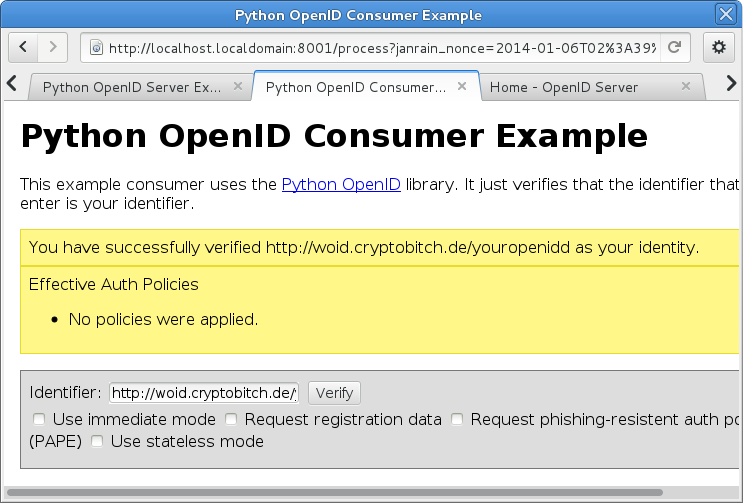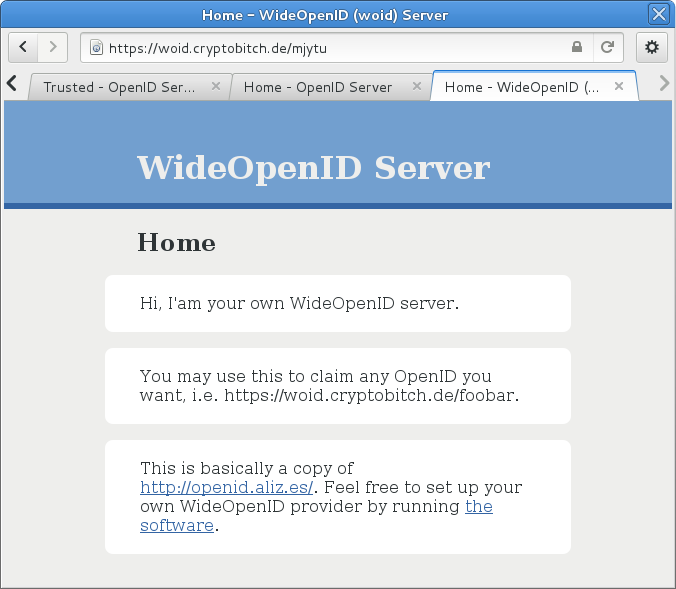Uh, I meant to blog about this a while ago, but somehow, it got lost… Anyway, I was inspired by http://openid.aliz.es and intrigued by OpenID I set out to find an implementation that comes with an acceptable level of required effort to set up and run.
While the idea of federated authentication sounds nice, the concepts gets a bit flawed if everybody uses Google or Stackexchange as their identity provider. Also, you might not really want to provide your very own OpenID for good reasons. Pretty much as with email, which is why you could make use of mailinator, yopmail, or others.
There is a list of server software on the OpenID page, but none of them really looked like low effort. I wouldn’t want to install Django or any other web framework. But I’d go with a bad Python solution before even looking at PHP.
There is an “official” OpenID example server which is not WSGI aware and thus requires more effort than I am willing to invest. Anyway, I took an existing OpenID server and adapted it such that anyone could log in. Always. When developing and deploying, I noticed that mod_wsgi‘s support for virtualenv is really bad. For example, the PYTHONPATH cannot be inside Apache’s VirtualHosts declaration and you thus need a custom WSGI file which hard codes the Python version. It appears that there is also no helper on the Python level to “load” a virtual env. Weird.
Anyway, you can now enjoy OpenID by providing http://woid.cryptobitch.de/your-id-here as your identity provider. The service will happily tell anyone that any ID is valid. So you can log in as any name you one. A bit like mailinator for OpenID.
To test whether the OpenID provider actually works, you can download the example consumer and start it.


